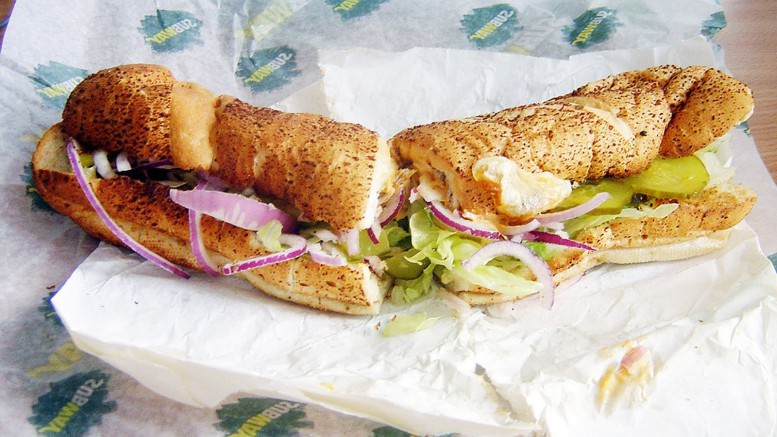A federal appeals court on Thursday cast doubt on the legitimacy of a settlement resolving claims that Subway tricked customers by selling “Footlong” subs that were less than a foot long.
A three-judge panel of the 7th U.S. Circuit Court of Appeals in Chicago heard arguments on a challenge by prominent class-action critic Ted Frank, who said the settlement gave too much money to lawyers and no relief to customers who felt shorted.
The settlement approved in February required Subway to adopt quality control measures, consistent with “the realities of baking bread,” to ensure that its six- and 12-inch sandwiches were as long as advertised.
Lawyers for the plaintiffs were awarded $520,000, and $5,000 of “incentive awards” were awarded to 10 plaintiffs.
But Frank said the accord merely codified practices that Subway, operated by Doctor’s Associates Inc, adopted in January 2013.
He said the settlement’s “principal effect” was to “force the defendant to give money to lawyers, with nothing going to the class at all.”
The plaintiffs’ lawyers accused Frank of arguing that they should not be paid simply because there was no monetary relief.
Circuit Judge Diane Sykes, however, questioned the settlement itself, saying “very few” sandwiches fell short of 12 inches, customers could always ask for more food, and customers who already ate “short” sandwiches would get no benefit.
“There is just no argument for a consumer fraud action here,” she said. “Any claim that the shape of the bread is material would be rejected as a matter of law as frivolous.”
Matthew De Re, a lawyer for the plaintiffs, countered that “there was no ‘selling out’ here. It was plaintiffs’ counsel doing the best they could with what turned out to be some ‘bad facts.'”
For its part, Subway said customers would not feel cheated if served Footlong sandwiches only 11.75 inches long, and that short sandwiches contained no less food.
Jeffrey Babbin, a lawyer for Subway, said the company made a business decision to settle, “in the midst of a media frenzy.”
But Circuit Judge Ilana Rovner questioned whether certifying a settlement class made sense if the claims were meritless.
“Are you essentially arguing that defendants in frivolous class actions need an effective exit?” she asked Babbin.
“We certainly were looking for an effective exit,” he said.
The court posted a recording of oral arguments on its website. It typically rules within a few months.
The case is In re: Subway Footlong Sandwich marketing and Sales Practices Litigation, 7th U.S. Circuit Court of Appeals, No. 16-1652.
Source: www.reuters.com





Be the first to comment on "Subway ‘Footlong’ Settlement Gets Appeals Court Grilling"